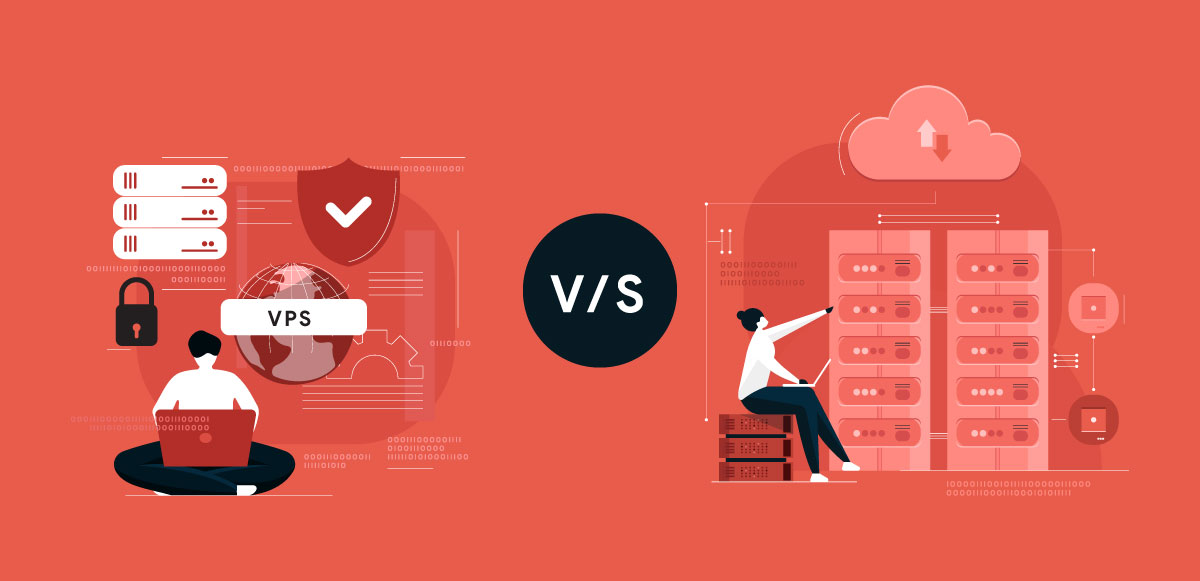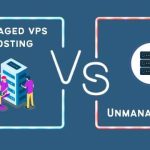VPS vs. Dedicated Server – When deciding between a Virtual Private Server (VPS) and a Dedicated Server for your business, it’s crucial to weigh their differences and consider which aligns better with your needs. Both have distinct advantages and are suited for different use cases. Here’s a detailed comparison to help you make an informed decision:
Table of Contents
1. Understanding VPS and Dedicated Servers
VPS (Virtual Private Server): A VPS is a virtualized server that mimics a dedicated server within a shared hosting environment. It uses virtualization technology to divide a physical server into multiple virtual servers. Each VPS hosting operates independently, with its own operating system, resources, and configurations.
Dedicated Server: A dedicated server is a physical server exclusively leased to a single client. All the hardware resources—CPU, RAM, storage, and bandwidth—are dedicated solely to the client, providing complete control over the server’s configurations and performance.
2. Performance and Resources for VPS vs. Dedicated Server
VPS:
- Shared Resources: Although each VPS operates independently, it shares the physical server’s resources with other VPS instances. This means that resource availability can be affected by the load on the host server.
- Scalability: VPS offers more flexibility in scaling resources compared to shared hosting. You can often upgrade your VPS plan to gain additional CPU, RAM, or storage as needed.
Dedicated Server:
- Exclusive Resources: A dedicated server provides all the hardware resources to a single client. This ensures optimal performance, as you are not sharing resources with other users.
- High Performance: Dedicated servers are ideal for resource-intensive applications, high-traffic websites, or databases requiring maximum performance and minimal latency.
3. Control and Customization
VPS:
- Control: VPS offers a higher level of control compared to shared hosting but less than a dedicated server. You can configure your operating system and install software as needed, but you’re still within the constraints of the host server’s limitations.
- Customization: You have significant control over your VPS environment, but certain hardware-level customizations are not possible.
Dedicated Server:
- Full Control: With a dedicated server, you have complete control over all aspects of the server. You can customize hardware components, configure the operating system, and install or remove software according to your needs.
- Tailored Solutions: This high level of control allows for tailored solutions that can be optimized for specific applications or workloads.
4. Security and Isolation
VPS:
- Security: VPS provides a higher level of security compared to shared hosting due to isolated environments. However, since the VPS shares the physical server, there could be potential vulnerabilities if other VPS instances are compromised.
- Isolation: Each VPS is isolated from others on the same physical server, reducing the risk of cross-contamination.
Dedicated Server:
- Enhanced Security: Dedicated servers offer the highest level of security as there are no other users on the same hardware. You have full control over security measures, including firewall configurations and software installations.
- Isolation: Since you are the sole user of the server, there is no risk of security issues arising from other tenants.
5. Cost Considerations
VPS:
- Cost-Effective: VPS hosting is generally more affordable than dedicated servers. It is an ideal choice for businesses with limited budgets that require a balance between performance and cost.
- Budget-Friendly: VPS plans are scalable, so you can start with a basic plan and upgrade as your needs grow.
Dedicated Server:
- Higher Cost: Dedicated servers are more expensive due to the exclusive use of the physical hardware. The cost includes not only the server itself but often higher management fees as well.
- Justifiable Investment: For businesses with high performance, security, or customization needs, the higher cost can be justified by the benefits of having dedicated resources.
6. VPS vs. Dedicated Server Use Cases
VPS:
- Small to Medium Websites: Ideal for businesses with moderate traffic and performance needs.
- Development and Testing: Suitable for staging environments, development, and testing applications.
- Budget-Conscious Businesses: Best for startups or small businesses needing a cost-effective solution with scalability.
Dedicated Server:
- High-Traffic Websites: Perfect for large e-commerce sites, high-traffic blogs, or websites requiring high uptime and performance.
- Resource-Intensive Applications: Best for applications with high memory or processing requirements, such as databases or enterprise-level applications.
- Mission-Critical Applications: Suitable for businesses where uptime and performance are critical.
Conclusion
VPS vs. Dedicated Server Choosing between a VPS and a dedicated server ultimately depends on your specific needs, budget, and growth expectations. A VPS is a versatile and cost-effective solution for businesses needing moderate resources and flexibility, while a dedicated server provides unparalleled performance, control, and security for those with more demanding requirements.
Assess your business requirements, future growth plans, and budget constraints to make the most appropriate decision. Both VPS vs. Dedicated Server options offer unique benefits, so carefully consider how each aligns with your business objectives and operational needs.


